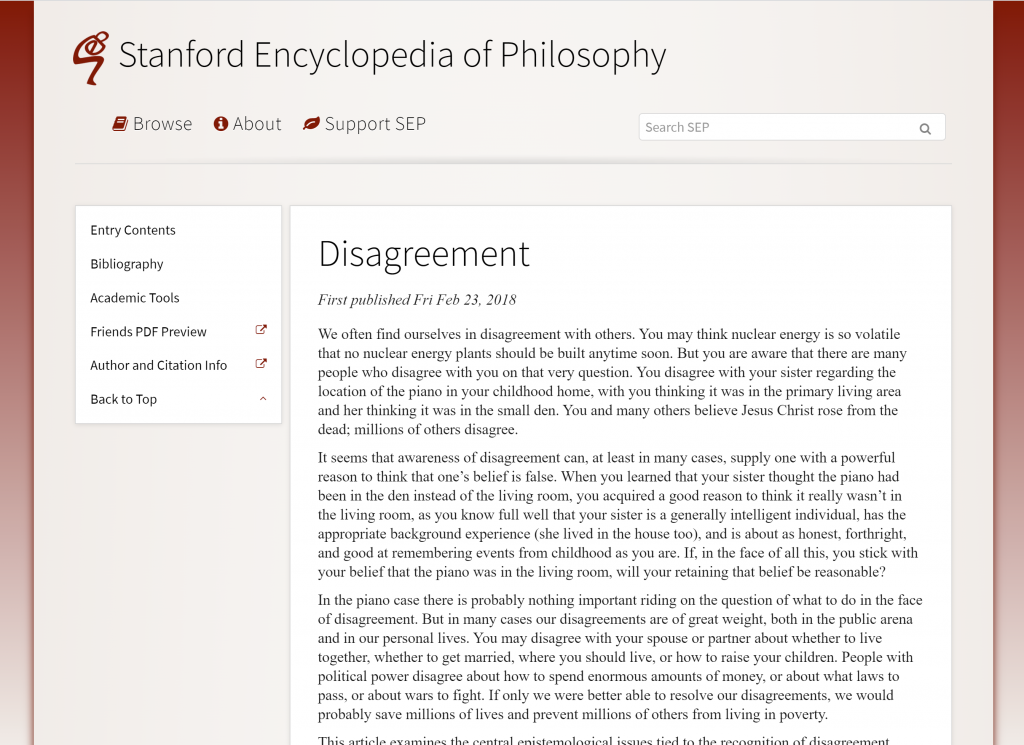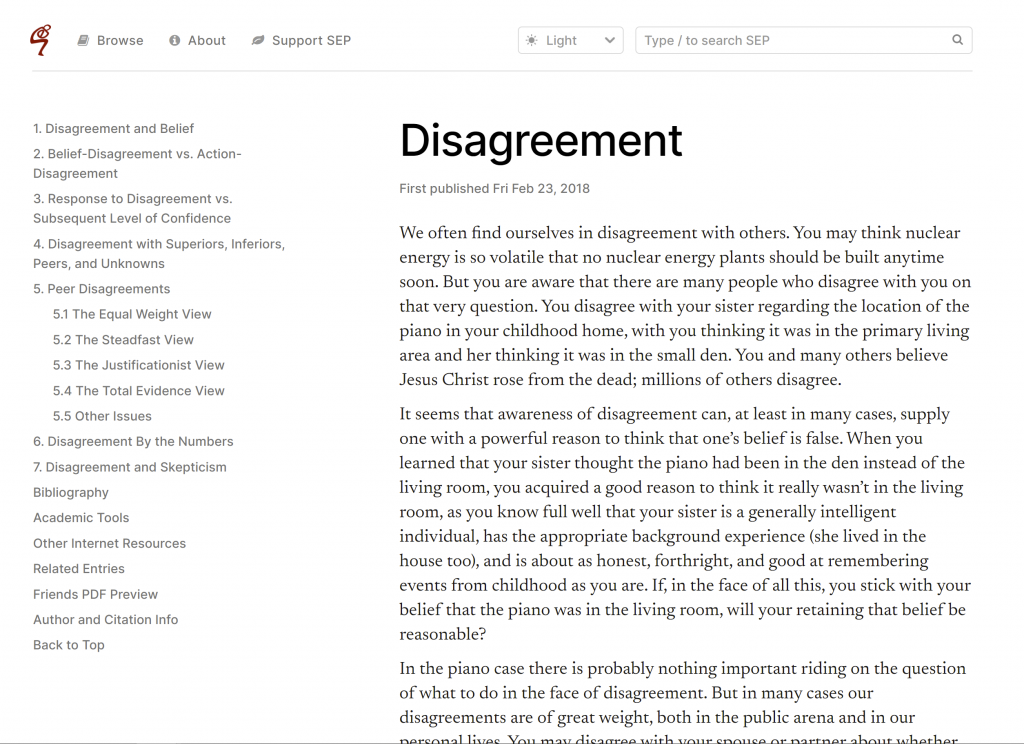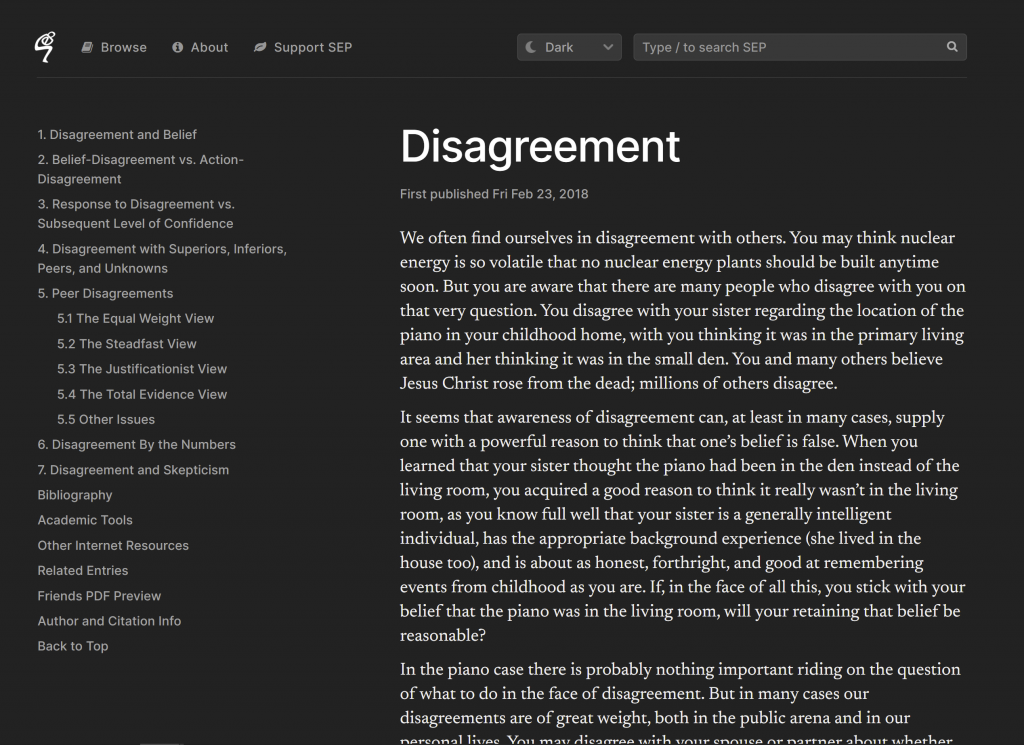
And here’s dark mode:
Here’s the “after” (yes, I installed it):

- moves each article’s navigation outline to the side of the page (it stays with you as you move through the article)
- offers the option of “dark mode”
- adds keyboard shortcuts for search
- removes irrelevant sections when printing
- improves the typography.

Here’s what it does:
What does it look like? Here’s the “before” shot:
Because the Stanford Encyclopedia of Philosophy (SEP) is such a valuable philosophical resource, some have been inspired to make it possible for others to work with it in new ways.
Mr. Shen says that the extension does not collect any user data, nor does it serve ads. And, he says “I don’t ever intend to charge money for it.”
You can check out and download the extension from this page.
Here’s another example, brand-new. It’s less radical, but might have broader appeal. Called “SEP+”, it’s a free Chrome browser plug-in that changes how the SEP looks and functions when you visit it. It was created by Andrew Shen, an MA student in philosophy at the University of Pennsylvania.

One example of this, posted about earlier this year, is Joseph DiCastro’s visualization-based search interface for the SEP. It’s creative and interesting and might allow you to more easily see connections between topics.




